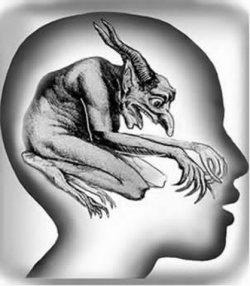Difference between revisions of "Irshya"
Jump to navigation
Jump to search
(Created page with "Irshya (Sanskrit, also īrṣyā; Pali: issā; Tibetan: phrag dog) is a Buddhist term that is translated as "jealousy" or "envy". It is defined as a state of mind in which one...") |
|||
| Line 1: | Line 1: | ||
| + | [[File:Mind-control-302.jpg|thumb|250px|]] | ||
Irshya (Sanskrit, also īrṣyā; Pali: issā; Tibetan: phrag dog) is a Buddhist term that is translated as "jealousy" or "envy". It is defined as a state of mind in which one is highly agitated to obtain wealth and honor for oneself, but unable to bear the excellence of others | Irshya (Sanskrit, also īrṣyā; Pali: issā; Tibetan: phrag dog) is a Buddhist term that is translated as "jealousy" or "envy". It is defined as a state of mind in which one is highly agitated to obtain wealth and honor for oneself, but unable to bear the excellence of others | ||
| Line 15: | Line 16: | ||
[[Category:Buddhist Terms]] | [[Category:Buddhist Terms]] | ||
| + | [[Category:Buddhist psychology]] | ||
Revision as of 07:12, 26 January 2013
Irshya (Sanskrit, also īrṣyā; Pali: issā; Tibetan: phrag dog) is a Buddhist term that is translated as "jealousy" or "envy". It is defined as a state of mind in which one is highly agitated to obtain wealth and honor for oneself, but unable to bear the excellence of others
Irshya is identified as:
- One of the fourteen unwholesome mental factors within the Theravada Abhidharma teachings
- Belonging to the category of dosa within the Theravada tradition
- One of the ten fetters in the Theravada tradition (according to the Dhammasangani)
- One of the twenty subsidiary unwholesome mental factors within the Mahayana Abhidharma teachings
- One of the five poisons within the Mahayana tradition
- Belonging to the category of anger (Sanskrit: pratigha) within the Mayahana tradition
